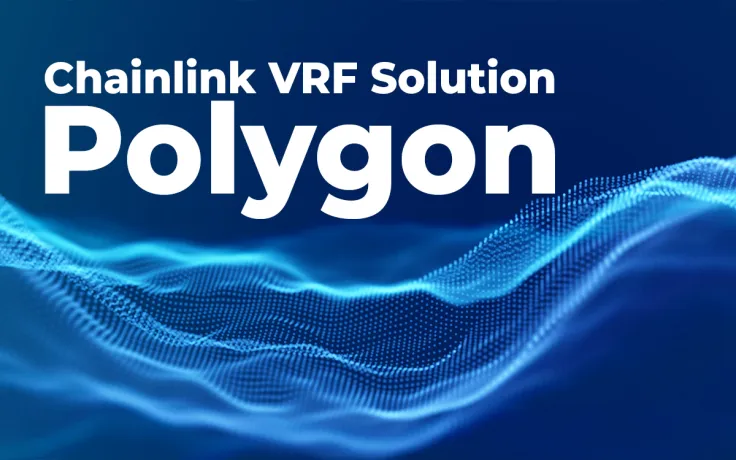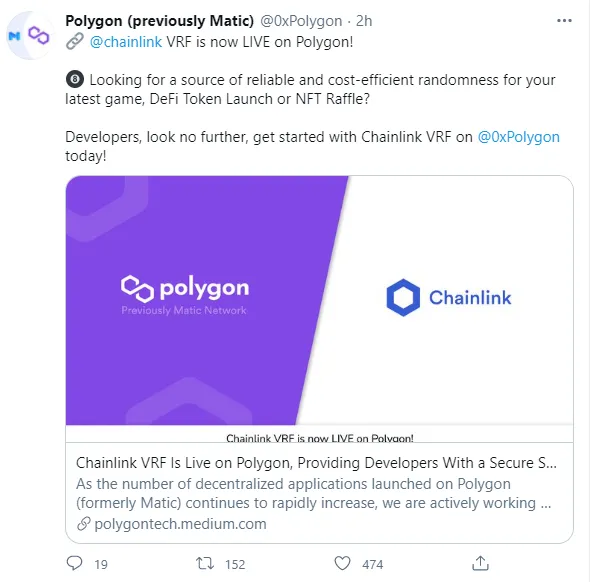
Polygon, a cross-platform hub for interaction among Layer 2 solutions, has announced the support of Chainlink's Verifiable Random Function (VRF). Why is this important?
Chainlink's VRF goes live on Polygon
According to the latest announcement, today, Feb. 23, 2021, Polygon (previously Matic Network) has integrated Chainlink's randomness solutions into its application hosting mechanisms.

That means that all decentralized applications (including DeFis) that chose Polygon as a hosting platform can now get connected to the source of verifiable randomness.
The verifiable random number generator can be integrated into the smart contracts of any dApp that needs it. This, in turn, upgrades the developer experience and efficiency of the whole set of Polygon-based dApps.
Polygon cofounder Jaynti Kanani outlines that this is a technologically advanced approach to the transparency and decentralization of dApps:
Chainlink VRF provides Polygon developers the most secure form of verifiable randomness, ensuring applications always operate in an unbiased and provably fair manner.
Use cases for tamper-proof randomness
DeFi, online gaming, blockchain-based casinos and NFT segments are the most impressive use cases for verified randomness. For instance, in decentralized e-sports, VRF can be useful in choosing random elements within gameplay, such as map generation, critical hits and matchmaking.
Blockchain-based gambling instruments will benefit from a decentralized selection of random winners in on-chain lotteries and bets. No party will be able to corrupt the outcome of the VRF-powered lottery.
In terms of the red-hot NFT corner, the VRF solution can improve the process of creation of rare collectibles, loot-boxes and tokenized art collections.
 Vladislav Sopov
Vladislav Sopov Dan Burgin
Dan Burgin